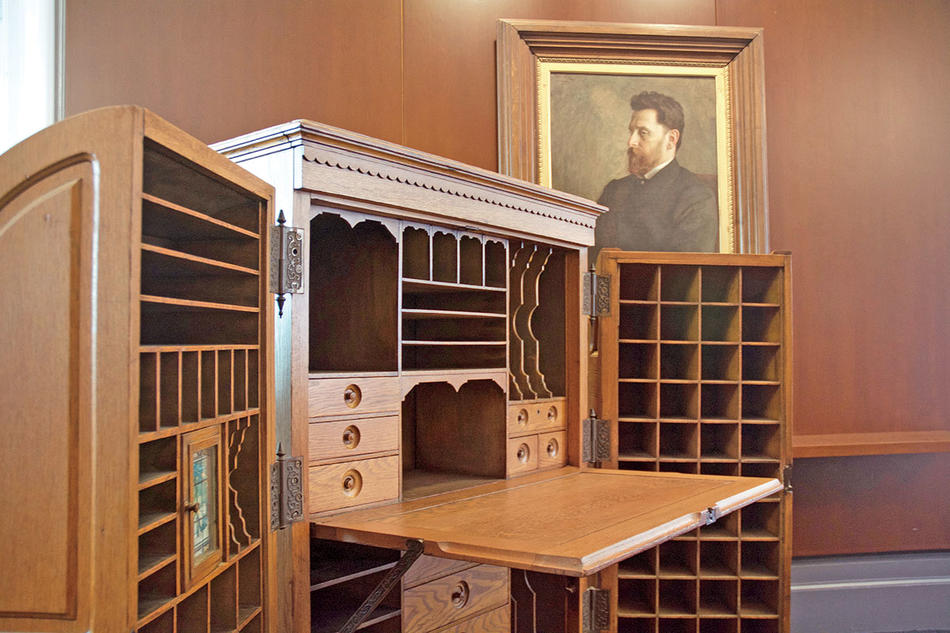The Wooton Desk Company of Indianapolis sprang up in 1870 at the dawn of the Gilded Age, resulting in expansive desks that seemed to express the limitlessness of America. Captains of industry like oil tycoon John D. Rockefeller and railroad magnate Jay Gould each owned one, and in 1883, Joseph Pulitzer, the new editor and publisher of the New York World, got a Wooton of his own. Pulitzer, who had come to America from Hungary at seventeen with little money or English, was now, at thirty-six, shopping like a proper plutocrat. His hand-carved Patent Cabinet Secretary, with ten drawers, ninety-nine compartments, and two mail slots, would sit in Pulitzer’s office at the World for the next twenty-eight years.
Truth be told, Pulitzer never spent much time at the desk. Afflicted with multiple ailments, he was more likely to be found on his outsize yacht, the Liberty, in the care of doctors. Still, from his sickbed he shaped the World into a showcase of innovation (illustrations, sensationalism, comics, sports), honing the paper’s populist-progressive slant and attacking the robber barons who orchestrated plunder from behind their own wide-winged Wootons. Engaged in a circulation war with Hearst’s New York Journal, the World trafficked in fake news: baseless reports that Spain had bombed the USS Maine in Havana harbor helped to drum up an actual war.
Chastened, Pulitzer retreated from yellow journalism and became a philanthropic promoter of the press’s role as the backbone of a functioning democracy. He gave Columbia $2 million to start the nation’s first graduate journalism school, which opened in 1912, and also endow the Pulitzer Prizes, administered at Columbia since 1917.
Pulitzer died in 1911, and after the World folded in 1931, his family sold his desk to James Wright Brown, owner of Editor & Publisher magazine. Brown donated it to Columbia in 1941. Today the desk sits on the seventh floor of the building that bears Pulitzer’s name. It is still in excellent condition — the desk of a man who was never cut out for a desk job.
This article appears in the Spring/Summer 2020 print edition of Columbia Magazine with the title "A Prize of a Desk."



